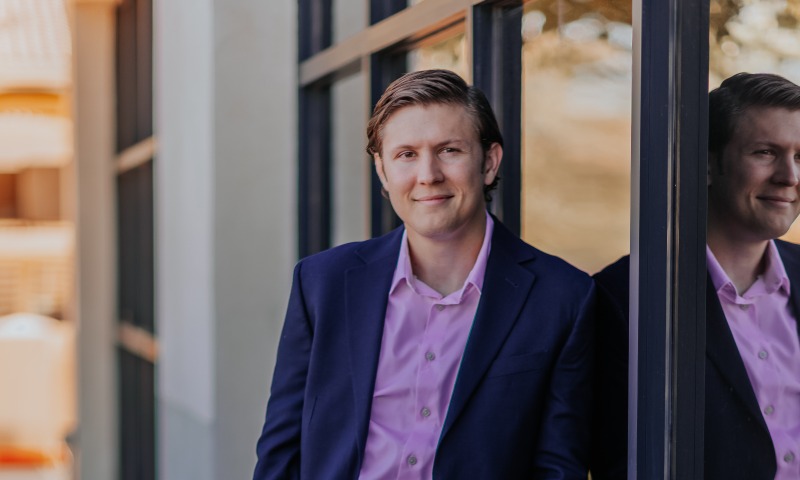An educator, engineer, entrepreneur, and community leader, Nick Suwyn started his software development journey at age ten building computer games. As a child, he developed a love for music and after high school began sharing his passion by teaching after-school music programs at elementary schools. He attended DeVry University and graduated summa cum laude with a degree in Computer Information Systems. After a few years in software development and technical education, Nick founded Promineo Tech with a mission to increase access to technology education. Today, Promineo Tech is the leading provider of coding bootcamps to community colleges.
Recently, in an exclusive interview with CXO Magazine, Mr. Suwyn shared his insights on the role of technology in higher education, the inspiration behind establishing Promineo Tech, lessons learnt from past experiences, pearls of wisdom, and much more. The following excerpts are taken from the interview.
What are your thoughts on the current state of higher education and technology’s role in education?
There is a lot of opportunity for improvement in higher education. The student debt crisis is commonplace conversation in today’s world, and the need to re-evaluate how education is delivered has never been more prevalent. More institutions need to focus on Education Delivery Optimization – a process to increase the affordability of education while maintaining quality through operational efficiencies. Technology plays a major role in this. There used to be a single, standard method to deliver education, and it came with a physical room and a full-time instructor. With technology, these days are long gone and the options that exist to experiment with more efficient education delivery are endless. Marketing, content delivery, instruction, and wraparound services can all be improved through technology to drive down the costs to students and increase access to life-changing education.
Nick, can you tell us about your professional background and areas of interest?
My professional background mainly consists of software engineering with some early music education at the beginning of my career. I eventually was recruited to combine those two skills and teach software engineering at a coding bootcamp in Scottsdale, Arizona. From that experience, I developed a passion for higher education in technology and helping increase affordability and access to what I believe is life-changing education. In 2018, I launched Promineo Tech with that focus as our mission and have grown the organization to be the number one provider of coding bootcamps to community colleges.

What’s a super brief history of coding in light of the current coding frenzy?
Coding has been around since the early 1840’s and started out as feeding symbols into a machine that could be used to solve various math problems. It’s seen a lot of advancement since then, but the fundamental concept is still the same – writing instructions for a computer to follow to automate various processes. Today, the most commonly recognizable products of coding include websites, mobile apps, and other forms of software.
What’s your take on student skills, workforce gap, employer needs – and coding?
When we consider the workforce gap that exists specifically in technology, the main contributing factor is the lack of truly accessible and affordable education. The demand for software developers far outweighs the number of qualified candidates to fill these roles, and the reason for this is that not enough people have access to the training necessary to become qualified. That doesn’t mean there is a shortage of organizations trying to address this, but we’re all trying to keep up with the pace of progress. Another problem is simply the messaging around these technical skills. Too many think that if they aren’t good at math or didn’t excel in school, then a career in technology is out of reach for them, and that is just not the case. In fact, the connotation that you must be a genius to approach these skills may be the largest barrier to accessible tech education. The truth is, if you enjoy solving problems or creating things, there is a high probability you can acquire these skills, such as coding, and participate in a strong career based on a very real skills gap and constant advancement.
What prompted you to establish your organization— Promineo Tech—what problem are you trying to solve?
A recruiter saw that I had both teaching and software development experience on my resume and asked if I’d be interested in teaching at a local coding bootcamp. To me, that sounded like a dream job. So, I took it. I ended up spending 12 to 13 hours at work a day because of how much I enjoyed what I was doing, and I fell in love with alternative education. However, I realized that while the bootcamp industry was a step in the right direction, the price point was still too high to be truly accessible to everyone. My family and I had been blessed because of the tech skills I acquired, and I wanted everyone else to have similar opportunities. After making the impact I could at the local coding bootcamp, I eventually left to create the model of optimized education delivery that could enable quality tech education to be delivered at a fraction of the cost. This mission resulted in creating Promineo Tech with the purpose of increasing access to life-changing tech education.
How have you managed and led through the last couple years—what purpose has driven you forward—what’s been the key?
I’m still figuring out my management and leadership philosophy, and I’m sure I’ll always be in this boat as I find myself adapting when I learn something new, or the situation requires it. However, one common thread I’ve tried to keep consistent in how I manage is to be kind and empathetic. I want things to be done the right way but tend to be very forgiving at mistakes and focus on either fixing mistakes or moving forward in the right direction. I care a lot about our team members, and I believe that resonates through to our students.
Congrats on your big win in the Inno Madness competition! What does an honor like this mean for you and your team?
Thank you! The Inno Madness win was great exposure for our team and helped more people learn about our mission to increase access to life-changing tech education. However, I believe the real value was that it allowed our team an opportunity to work together and dig deep to accomplish something that we wouldn’t have been able to if every single person wasn’t giving their all. It was a very tough competition, and we thought we had it won, but woke up on the weekend down 12%. It was a real “Rocky” moment for our team to see what they were made of, and I hope that lesson sticks when any one of our team members feels like they’re falling behind in life.

What key lessons from your past inform your current success and your vision forward into the future?
What comes to mind when I hear this question is the different experiences I’ve had with various employers. Some employers cultivated an amazing culture, and it shone through the work of the employees and reflected in the customer experience. Other employers, the opposite was true. My experience with companies on both sides of the spectrum have helped me decide that I want Promineo Tech to be a place people love to work, where they are passionate about the lives, they change every day and feel like they are treated well. Experiencing good and poor company cultures has informed our success and vision into the future.
How do you empower the people you are leading?
One of the most empowering things I’ve ever experienced at a job was my leader trusting me to truly own my department or line of work and letting me run with it. I try to do the same with my team members; I let them know that their department is their domain, they should treat it like their own business, and I am here to help consult them and share my thoughts, but I trust that they will succeed. When I was on the receiving end of this model, I grew a lot in a short period of time. I strive to give my team that same opportunity.
What are your passions, and how do you unplug from work?
Some of my hobbies and passions include spending time with my wife and three children, writing/playing music, skateboarding, water sports, chess, art, and finding new culinary experiences. I believe my number one hobby is finding new hobbies and developing additional skills.
What advice would you give to aspiring edtech professionals?
While it is extremely important to solve a problem in education, it is equally important to figure out how to monetize the solution and make it sustainable so it can ultimately change more lives. That may sound like common sense, but education is a space field with people who want to change the world within major concern for money – which is a good thing! However, making money to expand impact is more altruistic than developing the most innovative EdTech solution that doesn’t reach enough people because there is no sustainable model to back it. You have to focus on the Solution and the Business, without sacrificing either for the other; they must be symbiotic to create impact.

